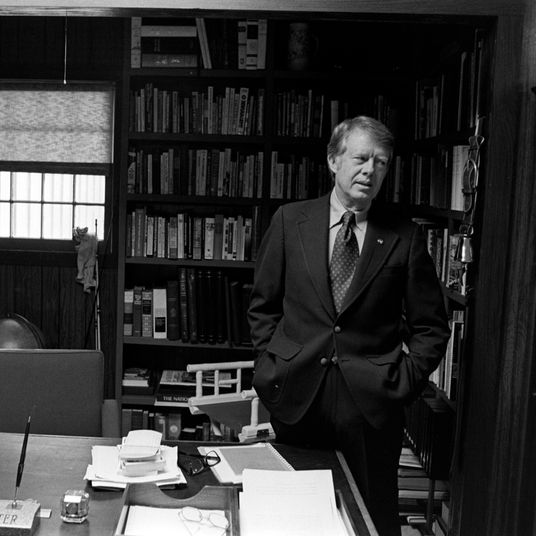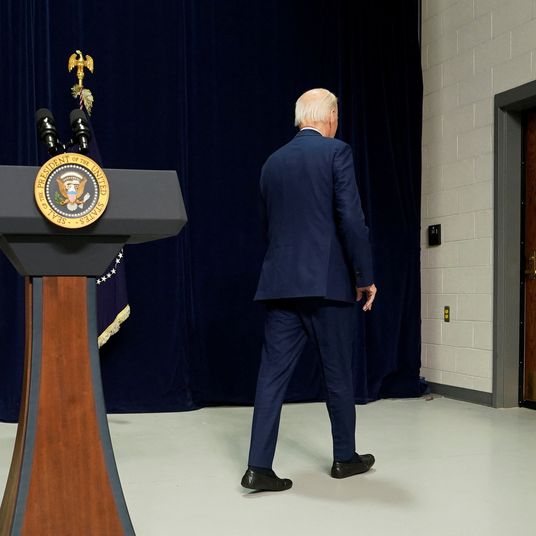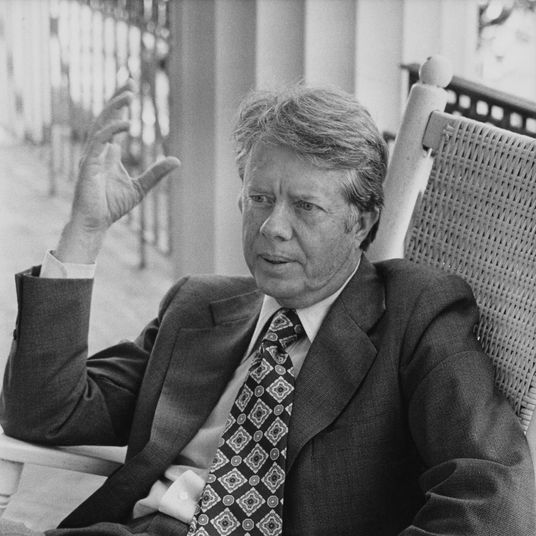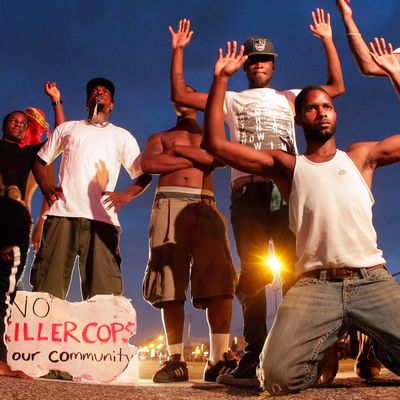
One reason for the sustained anger carrying the Michael Brown protests into a second week, beyond the general pattern of racial injustice, locally and nationally, going back decades or centuries, is the sense that the investigation is taking too long. Beginning with the fact that Brown’s lifeless body lay in the street for four hours, in the summer sun, after he was shot, every official response has been delayed or drawn out, most notably the naming of Darren Wilson as the officer responsible, which took nearly a week.
Adding fuel to the idea that there’s a conspiracy or cover-up in motion, there’s a pattern developing in Ferguson: When the information finally does come out, it’s been tainted by irrelevant disclosures meant to undermine the character of a dead black teenager. This time, predictably, it’s marijuana use. We’ve seen this before, and we’re seeing it again.
On Friday, it was the baffling dual announcement of Wilson’s identity along with a police report detailing an unarmed convenience store robbery allegedly committed by Brown minutes before his death. It took a few hours and a second press conference for Ferguson Police Chief Tom Jackson to explain that Officer Wilson did not know Brown was a robbery suspect, and he initiated the fatal encounter because, in Jackson’s words, the 18-year-old was “walking down the street blocking traffic, that’s it.” (Jackson went on to alter his story again, saying later that Wilson “made the connection” between Brown and the theft after stopping him for being in the road.)
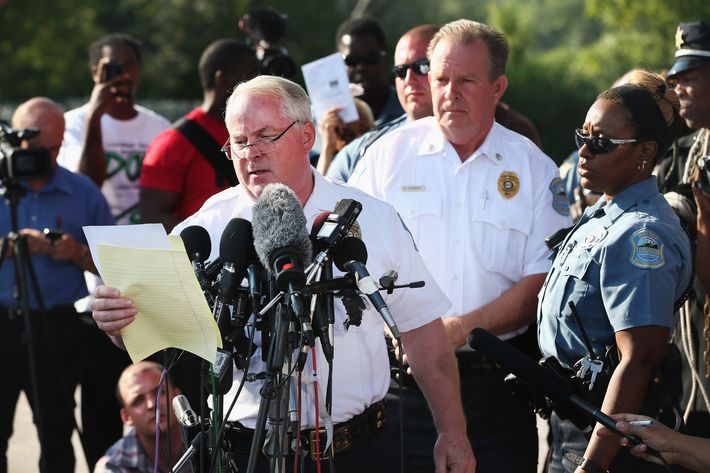
Today, ten days on since Brown’s death, comes the St. Louis County autopsy. First reported by the Washington Post, the findings of the county’s medical examiner Mary Case seem to corroborate those of the family’s own independent autopsy: Brown was shot from the front, between six and eight times. But that’s all we know so far, because the report is not yet public. Oh wait, one more thing:
In addition, Brown had marijuana in his system when he was shot and killed by a police officer on Aug. 9 in Ferguson, according to this person, who spoke on the condition of anonymity because of the ongoing investigation.
An anonymous source, someone “familiar with the county’s investigation,” just thought everyone should know that Brown, like 7 percent of Americans over the age of 12 — 21 million people — may have smoked marijuana in the last month.
Why this is material to the investigation, neither the county nor the Post (headline: “County investigation: Michael Brown was shot from the front, had marijuana in his system”) has said, although the newspaper does include this passive disclaimer, presumably for balance: “In anticipation that Brown could be vilified by the results of the drug test, conducted as a routine part of the autopsy, protesters have consistently insisted that Darren Wilson, the officer who shot Brown, should be required to submit to one as well.” Don’t hold your breathe for that.
Not noted is the fact that marijuana use is not linked to violent behavior, nor is it a crime punishable by death in the United States. From Carl Hart, an associate professor of psychology at Columbia, writing in the New York Times:
The scientific studies, including my own research, on the short-term effects of the drug on cognitive functioning show how unlikely it is that marijuana could have caused him to behave erratically or have difficulty following instructions.
Granted, the drug can temporarily slow people down in completing familiar tasks that involve memory or abstract reasoning, and it can lower a person’s level of vigilance or focus. But research subjects in my studies have shown that they can make plans, exhibit self-control and cooperate closely with others even under heavy influence of marijuana […]
There is a broader point to be made, though […] the research tells us that aggression and violence are highly unlikely outcomes of marijuana use. Based on my own work, during which I have administered thousands of doses of marijuana, I can say that its main effects are contentment, relaxation, sedation, euphoria and increased hunger, all peaking within 5 to 10 minutes after smoking and lasting for about two hours. It is true that very high THC concentrations […] can cause mild hallucinations and paranoia, but even these effects are rare and usually seen only in very inexperienced users.
Hart was not writing specifically about Mike Brown, but he might as well have been. Hart was writing about Trayvon Martin, who faced the same smears. Sadly, what the two teenagers had in common goes entirely without saying.













